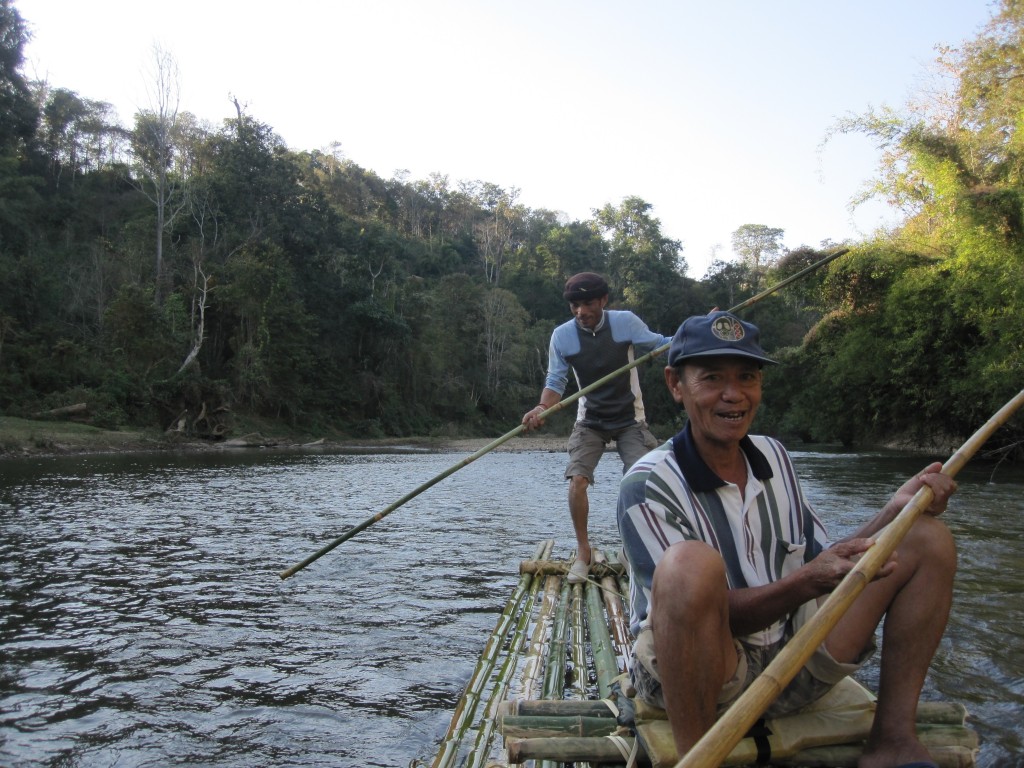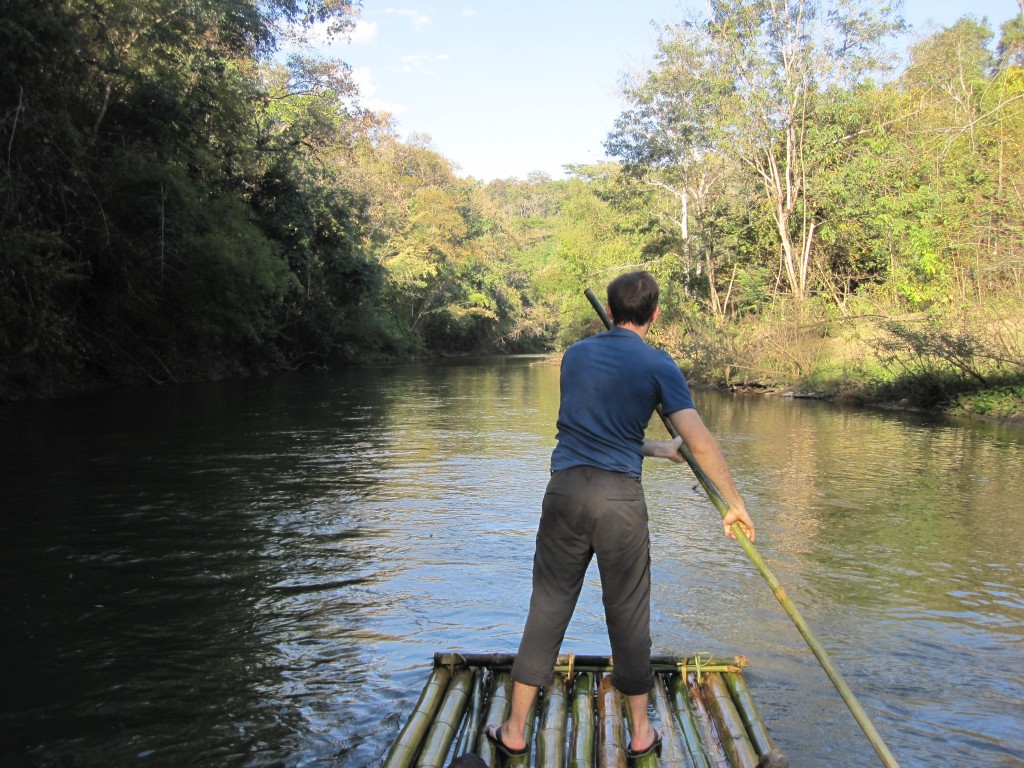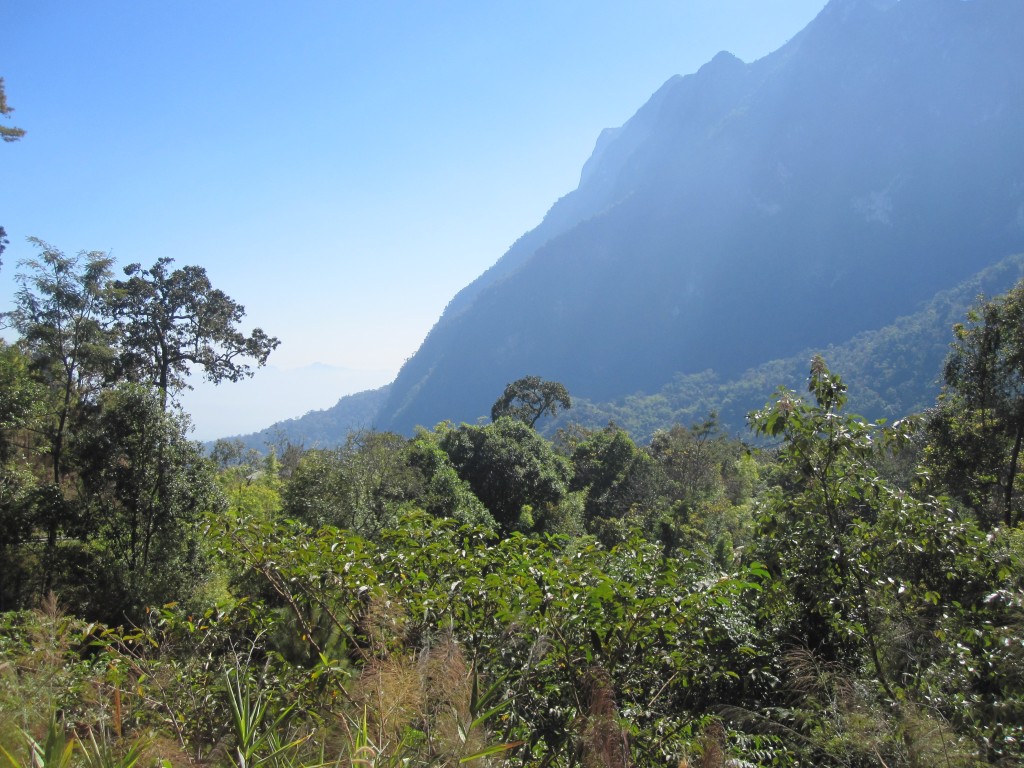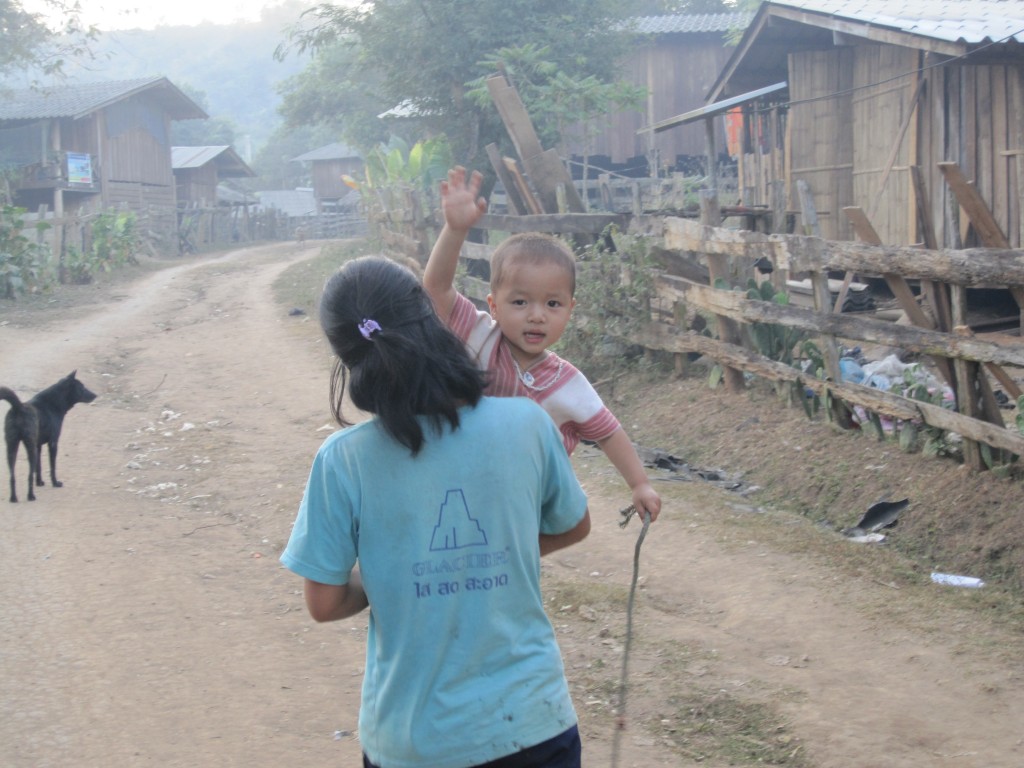Chiang Dao: Caves, Homey Hotels, and Outhouses
We knew we’d found something special the minute we set foot at Chiang Dao Nest, our hotel in a rural hamlet about 2 hours north of the tourist hub of Chiang Mai. We stumbled out of our songthaew and were immediately ushered to a seat in the open-air restaurant, served hot green tea, given a breakfast menu, our luggage whisked away, and welcomed like family by the cheerful Book.
Chiang Dao cuddles up to Doi Chiang Dao, the third-highest mountain in Thailand, and offers fresh air, clear skies, and cold nights. We came here on a whim and found plenty to do. For example, there are caves you can tour. No American-style electric lights and hand rails here. We followed a village lady with a gas lamp through the caverns, squeezing through craggy holes and ducking stalactites.


Just past Chiang Dao Nest, there’s a monastery built onto the mountain. You must climb 510 steps to reach it, but the view from the top is breathtaking.
But the real draw for us was Chiang Dao Nest. It wasn’t just the bungalow-rooms (which were large and comfortable), the grounds (which were beautiful), or even the food (which was great at both of their restaurants); it was the fact that they offered the type of thoughtful service usually only found at five-star hotels, at a one-star price. Water and snacks provided before we left on our trek; a funny map of the area drawn by the owner; sweet-faced waitresses who kept us well-stocked in ice waters, coffee and juice while we worked on the blog. If it hadn’t been all booked up for the weekend, I’m certain we would have lingered.

We also booked a trek through Chiang Dao Nest. On our first day, we were met by Sam, our scrappy local guide. He drove us up (and up and up) into the mountains, past herds of water buffalo and wizened old women carrying large baskets of papaya on their backs. After about an hour and a half, we met our other guide, Moss, and began our trip down the serene Mae Tang river in a bamboo raft I’m pretty sure Moss lashed together that morning.

We spent the night at a remote Karen village. No electricity, no running water, no indoor toilet. We slept on a thin mattress in a rickety, drafty wooden hut. Sam and Moss managed to cook us up an incredible dinner of curry, vegetable soup, and rice. After, we gathered around the fire, reading and attempting what little conversation we could. Sam brought out little presents to us: a purple sweet potato cooked over the coals, oranges, and rice whiskey distilled in the town over. (“The water boil, then ping-ping-ping, whiskey!”).
These primitive conditions were problematic when I woke up at 3 am needing to use the facilities. Surely I can avoid a 3 am trip in the dark and cold to the outhouse? Turns out I couldn’t. I put on my shoes, an extra jacket, reached for my glasses, thought better of it (I don’t want to see what’s out there), grabbed toilet paper (bring your own) and put my headlamp on. I marched out to take care of business, and promptly fell down the last three steps of the hut. (Should have worn my glasses! Should have realized the headlamp should be worn correctly so it illuminates the ground and not the trees!) I looked furtively around, like the pig they kept on a leash under our hut would be guffawing at my gaffe.

The whole experience was both enlightening and awkward (meaning the hill-tribe stay generally, though you could say the same of my run-in with the outhouse). It is amazing to me that in 2013 people still live in this primitive way. It made me realize how pampered and lucky I am, to count warm clothes, soft beds, indoor plumbing and electricity as some sort of birthright, easily within reach. But Jordan and I were so clearly intruders, or at the very least outsiders. We didn’t take very many pictures because it felt like, “Look at the way all these poor people live. Isn’t that quaint?” Would we like it if Bill Gates walked into our house and started taking pictures and saying, “God, can you believe the way these people have to live?” On the other hand, I saw Sam even up with our hostess — the village clearly earns money from hosting people like us. And that’s where I’ve decided to let it sit with me — if we can approach these stays as educational and not some perverse, prosletyzing peep show, I am fine with being the means to an end for some clearly struggling people. Being their comic relief, too, that’s just gravy.





